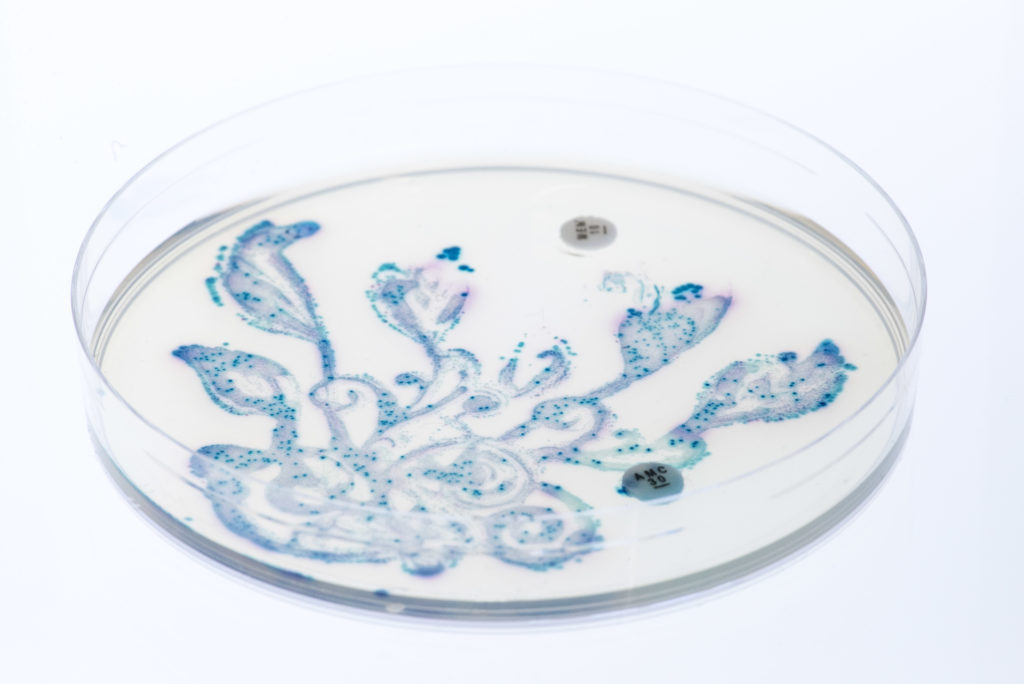A review article published in the International Journal of Neuropsychopharmacology summarizes the latest research on the role that microbiota in the gut play in brain function and behavior. While the research on this topic is new, and many open questions remain, experts are hopeful that bacteria-based interventions may be developed in the future that have a positive impact on mental health.
“The past five years have seen an amazing increase in our knowledge of how bacteria signal to the brain and the implications this has for psychiatry,” the researchers, led by Jane Foster of the McMaster University Brain-Body Institute, write in their overview of the topic.
“The communication of gut microbiota with the brain, through what is referred to as the microbiota-gut-brain axis, represents a new biological axis by which novel diet-based therapies can be designed to influence brain function and behavior.”

The role of the gut microbiome, the genetic material in the trillions of bacteria that live in the gastrointestinal tract, in thought and behavior began to be recognized in the early 2000s when animal studies revealed that the introduction of a single gut bacterium into mice led to anxiety-like behavior. These early studies also showed that some areas of the brain were activated by information that was transmitted up from the gut through the vagus nerve. Later studies found that microbiota could be translated from one set of mice to another through fecal transplants, and that doing so effectively transferred certain sets of behaviors between groups.
In recent years, human studies have found a connection between certain gut microbes and symptoms that are often considered to psychological in nature. For example, a 2011 study found that the microbiota of patients with cirrhosis had a dramatic influence on their cognition. In a step toward translating these results into treatment interventions, a 2013 study found that a combination of probiotics, like those found in yogurt, relieved feelings of depression and anxiety in volunteers.
According to the researchers, “microorganisms which inhabit the gastrointestinal tract are capable of producing neurochemicals that can bind to host receptors in sufficient quantities to effect neurophysiological changes in the host.” It has been suggested that microbes have evolved over centuries to be able to influence the behavior of their host mammals to ensure their own survival.
The researchers call for new studies to address the many remaining questions. “The time is now ripe,” they write, for a comprehensive analysis of the role of microbiota in the symptoms associated with ‘mental disorders’ like schizophrenia, anxiety, drug addiction, and eating disorders.
****
Foster, J.A., Lyte, M., Meyer, E. and Cryan, J.F., 2016. Gut microbiota and brain function: An evolving field in neuroscience. International Journal of Neuropsychopharmacology, 19(5), p.pyv114. (Abstract)















This is new to the orthodox, but not to those considered quacks and food weirdos. I recall an article by Natasha Campbell MacBride in a Journal of Orthomolecular Medicine at least 20 years ago, plus one by Elsa Colby Morley about 15 years ago. This also provides at least a partial rationale for therapeutic fasting, which Theron Randolph worked out about 60 years ago. I doubt if the present guys know anything about their predecessors.
Report comment
I’ve heard Campbell-McBride speak a few times over the past couple of years on online ‘summits’ created on specific topics such as gluten, the microbiome, and maybe another (and there are lots of ‘summit’ talks I don’t hear). The summits host all the current Integrative and Functional medicine people (some in academia, some in clinical practice). Hard to imagine that they’re not all aware of each other. These ‘summits’ are an incredible source of information. That’s where I first heard of the gut being referred to as the ‘first brain’, and the grey matter as the ‘second brain’.
Liz Sydney
Report comment
You don’t hear the voice of hunger do you? You must be schizophrenic.
How about the thought of butterflies in your stomach? That is quite a psychotic symptom.
https://en.wikipedia.org/wiki/Butterflies_in_the_stomach
Report comment
Only if the voice of hunger forced me to listen to Shakespearean soliloquies in their entirety before I could actually eat (alas, poor Yorick…).
Report comment
This article really reflected my own experience so I just thought I would share.
When I was in high school I was diagnosed with eating disorder, depression, anxiety and ptsd. When I went to college I had convinced myself I was schizophrenic. After being put on an enormous amount of medication, I went to a doctor who told me to begin with food allergies, to see which things who body was sensitive to. Although it isn’t necessarily an allergic reaction, it was a small amount tested through a small needle pocked into my back to see how the skin would react. Those that my skin showed some cause of irritation to were to be avoided. I did this for some months. Tobacco and beer (bulgar and wheat) were two of those things that I was found sensitive to, which is interesting because I have dopamine deficiency and have addictive behaviors. Recently I traveled in Israel for two months, where I ate what I wanted because it felt good and tasted great. I had went off all my meds just before leaving, but continued to smoke some weed and cigarettes throughout my trip. Now back in California, I’ve cut down on smoking, haven’t taken any medication is over three months (including birth control), and continue to eat what feels good.
Report comment
This has been known for centuries. according to Chinese Medicine.
Report comment
Yes! And so you would think that between these studies being done in academia, plus current Integrative and Functional medicine’s talk of the gut for the past few years, PLUS what’s known from ancient systems (China, India), that the conventional system would be changing.
BUT just recently a friend’s 20something daughter began having ‘anxiety attacks’ out of nowhere, and the family went down every possible conventional route. She’s now on two psych drugs and a third for sudden attacks. Like one of my kids said, ‘props to psychiatry as a business model!’
Report comment
You’ve got a wise kid, that’s exactly it–business over truly helping, or even admitting they don’t know how to help. Money, money, money.
A friend called me last year, mother of an 18-year-old college freshman, telling me exactly what you describe above, that the daughter had started having “anxiety/panic attacks” out of the blue, and she feared having to take her to a psychiatrist. I was soooo happy she called me first.
I gave her a few pointers regarding grounding, along with perspective regarding where her daughter was in her development. I knew her story so I could put it into context, and suggested that her daughter might want to consider taking a semester off. The daughter was relieved to take time off, and learned to do grounding meditation, and she is now back on track.
ALL therapy, drugs, mental health anything–avoided and all is well. Took a bit of common sense, perspective, and learning about what it means to be grounded. That’s it.
Report comment
Lucky for your friend that she was open-minded and trusted your judgment! (Lucky she had you, of course.) You did exactly what Kelly Brogan talks about on her post today, ‘What Does Your Illness Mean?’
You considered your friend’s daughter in the context of her own self and life and gave sensible and safe advice. Sounds so simple and caring, but in fact it’s light-years away from what the ‘health care’ system would have done.
Liz
Report comment
I think “keep it simple” is a good mantra for healing. For complex situations, I think it still pays to keep it simple, one step at a time. Eventually, things lighten up because one has added ‘ease’ to the process, which I think is enormously helpful. At some point, healing simply becomes a process of personal growth and evolution, and we learn what works best for us, tools for life. It’s a gradual process of ascension, layer by layer.
I think western medicine tends to complicate things unnecessarily, for a lot of reasons. It also puts a Band-aide on things rather than healing them at the root, leading to chronic conditions. I far prefer Chinese Medicine to Western Medicine, down the line. Mainly because it works! It’s also affordable, unlike western medicine, which is basically “medicine for the rich.”
Report comment
You’d think that, but only if the current system was really aimed at helping people recover from their condition, whatever it is. The actual focus of the current system is making money and asserting authority over “lesser” people diagnosed as “mentally ill,” so such interventions are not welcome. If nothing else, they’d potentially undermine the base of chronic clients consuming their drugs and other “services.”
— Steve
Report comment
Right.
Psychiatry is the only medical specialty, and I say this very loosely because I don’t think it even belongs in medicine at this point, that doesn’t want it’s “patients” to get well. They do everything they can to keep people grounded in the system, where recovery is only a buzz word used to make everyone think that it’s truly interested in helping people find a way to get their lives back and move on.
Report comment
I agree with this, Stephen, that “healing” is merely a pretense and illusion in the system.
But on a semantic note which I think is subtle yet significant, I think “grounded in the system” is a perfect paradox. The system, itself, is not grounded. Quite the opposite, it is heady and stuck in past time, which makes it exactly ‘ungrounded.’
So I’d say that the system and its participants do everything they can to keep people *ungrounded* in the system. That’s how they keep control over people. Being ungrounded makes us extremely vulnerable, and keeps us separate from ourselves, so we cannot create what we desire, including clarity. That’s what psych drugs do, they disconnect people from their grounding. That’s utterly disempowering in every way.
When energy–whether from an appliance or human energy– is not grounded, it is unpredictable, unstable, and easily short-circuits.
Report comment
Stephen,
I see Psychiatry is a type of Pretend Medicine.
Overall Psychiatry doesn’t get people better, so the mentality would have to be along the lines of longterm illness. For someone to get better they have to do this outside of Psychiatry.
When they do get better they show up Psychiatry as a system of “white collar fraud” – and then naturally enough they become a threat.
A lot of psychiatry is based, on ‘denial’ which is a “mental illness” in itself. (Psychiatric practice is also based on a “tranquilliser as medicine delusion”).
Report comment
Alex,
I support your semantic note – when I’m anxious I’m away with the fairies, and ‘grounded’ might be the opposite to this.
I practice something similar myself (with present moment concentration) which works for me – when I apply it.
Report comment